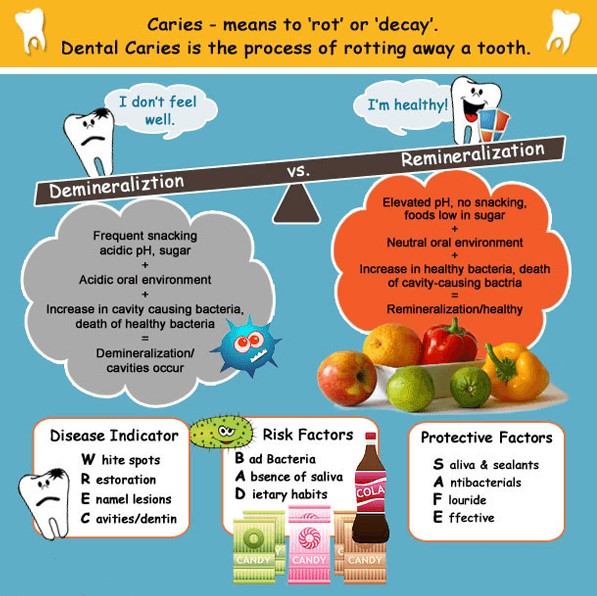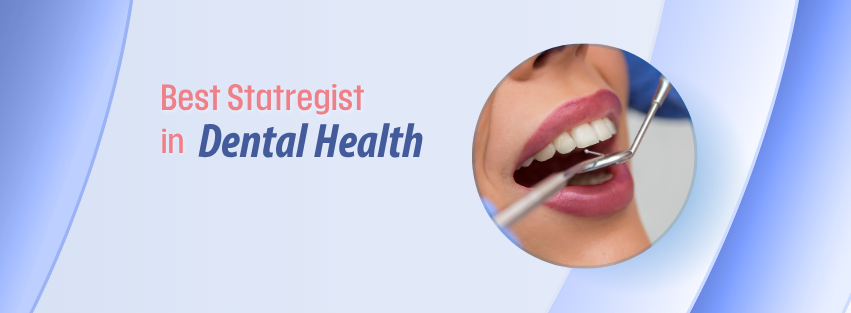
When it comes to maintaining good oral health, your diet plays a significant role. Many foods can contribute to tooth decay, but some are far more beneficial for your teeth. Understanding which food is least likely to promote tooth decay can help you make better nutritional choices for your dental health.
Tooth decay occurs when bacteria in the mouth produce acid as they digest sugars and carbohydrates. This process can weaken tooth enamel and lead to cavities. To minimize this risk, it’s essential to include foods in your diet that have low sugar content and promote dental health. Here are some foods that stand out as favorable options.
Firstly, let’s look into raw vegetables. Crunchy vegetables like carrots, celery, and cucumbers are great for your teeth. They are low in sugar and fiber-rich, which helps stimulate saliva production. Saliva is your mouth’s natural defense against decay because it helps wash away food particles and neutralizes acids produced by bacteria.
Next, dairy products offer several benefits for your dental health. Foods such as cheese, yogurt, and milk are excellent choices because:
- They are rich in calcium, which strengthens tooth enamel.
- They contain proteins called caseins that help prevent decay.
- They have a low sugar content, especially when you choose unsweetened yogurt.
Another food group to consider is lean proteins, including eggs, poultry, and fish. These foods are low in sugar and do not contribute to acid production in the mouth. Additionally, fish provides omega-3 fatty acids, which play a role in reducing inflammation, benefiting gum health.
Speaking of fish, fatty fish such as salmon and mackerel also contribute to oral health in a different way. They are high in Vitamin D, which is vital for calcium absorption. A diet rich in Vitamin D can help maintain strong teeth and bones, further combating tooth decay.
Fruits can be tricky since some are high in sugar. However, certain fruits can be tooth-friendly. For example:
- Apples: Often dubbed nature’s toothbrush, they stimulate gums and help clean teeth.
- Pears: These have a lower sugar content than many other fruits and can help balance the mouth’s pH levels.
- Strawberries: They contain malic acid, which can help whiten teeth and promote oral health.
Seeds and nuts are also excellent additions to your diet. Almonds, walnuts, and sunflower seeds are low in sugar and high in healthy fats, which can help balance your pH levels and keep your mouth alkaline. Their crunchy texture also helps clean teeth as you chew.
Moreover, choosing whole grains instead of refined grains is beneficial. Whole grain bread and oats can provide essential nutrients without the added sugars found in many processed foods. This switch helps to limit acid production in your mouth.
Water is crucial for your oral health. While it’s not a food, staying hydrated helps wash away food particles and bacteria, and it can neutralize acids in your mouth. Opt for plain water whenever possible, and remember to drink water after meals to help cleanse your mouth.
Maintaining oral hygiene habits is just as important as choosing the right foods. Regular brushing and flossing can remove plaque and prevent bacteria buildup. Combine these habits with a tooth-friendly diet, and you’ll be well on your way to a healthy smile.
Your food choices play a vital role in your oral health. By focusing on low-sugar foods rich in nutrients, you can greatly reduce your risk of tooth decay. Incorporate these healthy options into your daily meals, and not only will your teeth thank you, but your overall well-being will benefit as well.
The role of saliva in preventing dental issues:
Saliva plays a vital role in maintaining oral health and preventing dental issues. Often overlooked, this clear liquid produced by your salivary glands is essential for your mouth’s overall function. Understanding how saliva works can enhance your awareness of dental hygiene and its benefits.
One of the primary functions of saliva is to neutralize acids. When you consume sugary or acidic foods, such as candies or citrus fruits, your mouth’s pH level can drop, leading to an acidic environment that promotes tooth decay. Saliva helps to buffer these acids, restoring a balanced pH level. This process is critical in protecting your teeth from erosion and cavities.
Saliva also plays a fundamental role in cleaning your mouth. Every time you chew, your saliva washes away food particles and debris from your teeth. This rinsing action helps reduce the amount of plaque buildup, a sticky film of bacteria that can lead to gum disease and cavities if not removed regularly. Keeping your mouth clean with saliva can minimize the risk of these dental problems.
Additionally, saliva contains various antimicrobial properties. It is rich in proteins, enzymes, and antibodies that combat bacteria and fungi in your mouth. By inhibiting the growth of harmful microorganisms, saliva serves as a natural defense system against oral infections. This protective mechanism is crucial for keeping conditions like gingivitis and oral thrush at bay.
Here are some key roles of saliva in dental health:
- Neutralizes Acids: Balances the pH in your mouth to prevent tooth erosion.
- Cleans the Mouth: Washes away food remnants to minimize plaque buildup.
- Antimicrobial Properties: Contains substances that fight harmful bacteria and fungi.
- Remineralization: Supplies essential minerals like calcium and phosphate to strengthen teeth.
- Taste Enhancement: Helps dissolve food, enhancing the perception of flavor and encouraging eating.
Another interesting function of saliva is its role in facilitating digestion. When you chew your food, enzymes in saliva begin to break down starches, making it easier for your body to digest. This function can help reduce the amount of time food spends in your mouth, limiting the exposure of your teeth to potential harmful substances.
It’s also important to note that many factors can lead to reduced saliva production, or xerostomia, which can increase the likelihood of dental issues. Conditions like dehydration, certain medications, or health problems can impact salivation. When saliva levels drop, the protective benefits diminish, increasing your chances of experiencing tooth decay or gum disease.
If you find yourself dealing with dry mouth, there are several strategies you can implement to stimulate saliva production:
- Stay hydrated by drinking plenty of water.
- Chew sugar-free gum or suck on sugar-free candies to promote saliva flow.
- Incorporate crunchy fruits and vegetables, like apples or carrots, into your diet.
- Avoid tobacco and limit your caffeine intake, both of which can contribute to dry mouth.
- Consult your dentist about products designed to help stimulate saliva or address dry mouth.
Impact of sugar alternatives on oral health:
In today’s world, many people are consciously opting for sugar alternatives in their diets. While these substitutes can help reduce calorie intake and may assist in weight management, their impact on oral health remains a significant concern. Understanding how these sugar alternatives influence your dental health is essential for making informed choices.
Sugar is a widely recognized contributor to tooth decay. When sugar enters the mouth, it interacts with bacteria to form acids. These acids erode enamel—the hard outer layer of teeth—leading to cavities. In contrast, sugar alternatives, while still requiring careful consumption, may offer a safer path for dental health.
Here are some common sugar substitutes and their effects on oral health:
- Stevia: This natural sweetener is derived from the leaves of the Stevia plant. It contains no calories and does not ferment in the mouth, making it a great choice for oral health. Studies show that stevia has anti-bacterial properties, which may even help in preventing cavities.
- Erythritol: A sugar alcohol, erythritol has gained popularity due to its low glycemic index. Importantly, erythritol does not contribute to tooth decay. Research indicates that it can even inhibit the growth of harmful bacteria in the mouth, promoting a healthier oral environment.
- Xylitol: Another sugar alcohol, xylitol is known for its dental benefits. This sweetener can help reduce cavity-causing bacteria and even promote the remineralization of tooth enamel. It’s often found in dental products like toothpaste and chewing gum.
- Sucralose: As a widely used artificial sweetener, sucralose is many times sweeter than sugar but without calories. Current research suggests that sucralose doesn’t contribute directly to tooth decay, making it a safer choice than traditional sugar.
- Aspartame: While aspartame is often used in diet sodas and sugar-free products, it’s essential to monitor your overall consumption. While it does not directly promote tooth decay, excessive acidic beverages can still harm dental enamel.
These sugar alternatives into your diet can help manage your sweet cravings while protecting your teeth. However, moderation is key, even with substitutes.
Best practices for maintaining strong teeth:
Strong teeth are essential for overall health and well-being. Maintaining them requires a combination of good habits and informed choices. Here are some best practices that can help you keep your teeth strong and healthy.

First and foremost, establish a routine for brushing your teeth. You should brush at least twice a day—once in the morning and once before bed. Use a fluoride toothpaste, as fluoride is known to strengthen tooth enamel and make teeth more resistant to decay. Consider the following tips when brushing:
- Use a soft-bristled toothbrush to protect your gums.
- Brush for at least two minutes, making sure to cover all surfaces of your teeth.
- Replace your toothbrush every three to four months, or sooner if the bristles are frayed.
Flossing is another critical component of maintaining strong teeth. Daily flossing removes food particles and plaque from between your teeth, where a toothbrush can’t reach. Here’s how to do it effectively:
- Use about 18 inches of floss and wind most of it around your middle fingers, leaving about two inches to work with.
- Gently slide the floss between your teeth, curving it around each tooth in a C shape.
- Don’t forget to floss behind your back teeth!
Diet plays an essential role in dental health. Certain foods can strengthen your teeth while others contribute to decay. To support strong teeth, focus on the following:

- Dairy Products: Foods like milk, cheese, and yogurt are high in calcium and can help strengthen tooth enamel.
- Crunchy Fruits and Vegetables: Apples, carrots, and celery not only scrub your teeth while you chew but also promote saliva production, which neutralizes harmful acids.
- Nuts and Seeds: These are packed with minerals and healthy fats that can benefit your oral health.
- Leafy Greens: Vegetables like spinach and kale are rich in vitamins and minerals essential for strong teeth.
On the flip side, reduce the intake of sugary foods and drinks. Sugar feeds harmful bacteria that produce acid, leading to tooth decay. Here are some tips for minimizing sugar in your diet:
- Limit sugary snacks, like candy and cookies, especially between meals.
- Choose water or milk instead of soft drinks or sweetened beverages.
- Be wary of hidden sugars in foods like bread and sauces.
Foods that naturally strengthen enamel:
Maintaining strong enamel is key for healthy teeth. Your enamel plays a crucial role in protecting your teeth from decay and sensitivity. Some foods naturally encourage enamel strength and overall dental health. Let’s explore some of the best options that you can include in your diet to help keep your teeth strong and shining bright.
One of the most powerful minerals for strengthening enamel is calcium. Foods rich in calcium not only help in building strong bones but also reinforce your teeth. Here are some calcium-packed foods you can easily integrate into your meals:
- Dairy Products: Milk, yogurt, and cheese are excellent sources of calcium. The calcium and phosphorus content in these foods helps remineralize your enamel.
- Leafy Greens: Vegetables such as kale, collard greens, and spinach are not only rich in calcium but also provide other essential vitamins for teeth health.
- Fish: Sardines and salmon, especially those with bones, deliver a good dose of calcium and are also packed with omega-3 fatty acids, important for reducing inflammation in your gums.
Aside from calcium, phosphorus also plays a vital role in maintaining enamel strength. Phosphorus works alongside calcium to build strong teeth. Foods high in phosphorus are beneficial for your dental health:
- Meat and Poultry: Chicken, turkey, and beef are good sources of phosphorus, essential for the development and maintenance of enamel.
- Nuts and Seeds: Almonds, cashews, and pumpkin seeds provide both phosphorus and healthy fats that can support overall oral health.
- Whole Grains: Oats and quinoa contain phosphorus that helps remineralize teeth while providing fiber that is beneficial for dental health.
A crucial vitamin for enamel health is vitamin D. This vitamin helps your body absorb calcium effectively, making it essential for keeping your enamel strong. Here are some great sources of vitamin D:
- Fatty Fish: Salmon, mackerel, and tuna are all excellent sources of vitamin D. They not only contribute to enamel health but also boost your immune system.
- Egg Yolks: Including eggs in your diet can provide vitamin D. Make them a part of your breakfast or include them in dishes for a nutrient boost.
- Fortified Foods: Some foods are fortified with vitamin D, such as certain cereals and plant-based milk alternatives. Check the labels to find the right options.
Another set of powerful enamel-strengthening foods are those rich in antioxidants. Antioxidants ward off harmful bacteria and can actually help protect your enamel from erosion. Among these, fruits and vegetables are your best friends:
- Berries: Blueberries, strawberries, and raspberries are not only tasty but also packed with antioxidants that can help fight off bacteria in your mouth.
- Citrus Fruits: While they are acidic, they can stimulate saliva production, which helps neutralize acids in your mouth. Remember to rinse with water afterward to protect your enamel.
- Cranberries: These tiny fruits are great for dental health. They contain compounds that prevent harmful bacteria from sticking to your teeth.
Don’t forget about crunchy fruits and vegetables! Foods with a crispy texture, like apples and carrots, have a natural cleaning action when you chew them. This action can help scrub away plaque and food residues, making them excellent for your enamel:
- Apples: An apple a day keeps the doctor away, and it might just help your teeth as well! Their crunchiness can help reduce plaque buildup.
- Carrots: Chewing raw carrots increases saliva production, which is beneficial for your enamel as saliva helps neutralize acids.
Conclusions:
Maintaining strong, healthy teeth doesn’t have to be a daunting task; it can be as simple as making informed food choices. You now know that certain foods, like crunchy fruits and vegetables, are less likely to promote tooth decay. These options not only provide essential nutrients, but they also encourage saliva production. Saliva plays a critical role in protecting your teeth by neutralizing acids and washing away harmful particles.
Moreover, while sugar is typically seen as a villain in oral health, sugar alternatives can serve as a wiser option. Many of these substitutes do not break down into harmful acids that lead to decay. However, it’s essential to choose them wisely and in moderation. foods that naturally strengthen enamel, such as dairy products rich in calcium, nuts, and leafy greens, can significantly aid in fortifying your teeth against decay.
